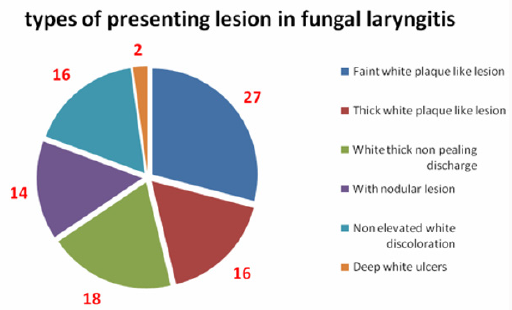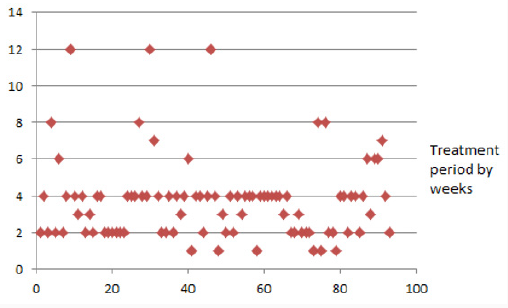Laryngitis, often abbreviated as LRG, is a condition characterized by inflammation of the larynx, commonly referred to as the voice box. This inflammation can lead to hoarseness or a complete loss of voice, making it difficult for individuals to communicate effectively. The larynx plays a critical role in speech production, breathing, and protecting the airway during swallowing. When inflamed, its function can be significantly impaired, leading to discomfort and other complications. Understanding the causes, recognizing the symptoms, and exploring treatment options are essential steps in managing this condition effectively.

What Is Laryngitis?
The larynx is a structure located in the throat that houses the vocal cords. These cords vibrate as air passes through them, producing sound and enabling speech. When the larynx becomes inflamed due to infection, irritation, or overuse, it results in a condition known as laryngitis. There are two primary types of laryngitis: acute and chronic. Acute laryngitis typically lasts for a short duration, often resolving within a few weeks. Chronic laryngitis, on the other hand, persists for longer periods and may indicate an underlying health issue requiring medical attention.
Common Causes of Laryngitis
Laryngitis can arise from a variety of factors, ranging from viral infections to environmental irritants. Below are some of the most common causes:
- Viral Infections: The majority of cases of acute laryngitis are caused by viral infections, such as those associated with the common cold or influenza. These viruses attack the respiratory system, including the larynx, leading to inflammation.
- Bacterial Infections: Although less common, bacterial infections can also cause laryngitis. These infections may result in more severe symptoms and often require antibiotic treatment.
- Vocal Strain: Overusing the voice, such as shouting, singing loudly, or speaking for extended periods without rest, can strain the vocal cords and lead to inflammation.
- Irritants: Exposure to substances like cigarette smoke, dust, chemical fumes, or allergens can irritate the larynx and trigger inflammation.
- Gastroesophageal Reflux Disease: Also known as acid reflux, this condition occurs when stomach acid flows back into the esophagus and reaches the larynx. The acid can irritate and inflame the vocal cords, leading to laryngitis.
- Allergies: Allergic reactions to pollen, pet dander, or other allergens can cause swelling in the throat, including the larynx.
- Trauma: Physical injury to the larynx, such as from intubation during surgery or accidental impact, can result in inflammation.
Symptoms of Laryngitis
The symptoms of laryngitis can vary depending on the severity and underlying cause of the condition. Some individuals may experience mild discomfort, while others may face significant challenges in daily communication. Common symptoms include:
- Hoarseness: One of the hallmark signs of laryngitis is a raspy or weak voice. In severe cases, individuals may lose their ability to speak altogether.
- Sore Throat: Inflammation of the larynx often leads to a painful or scratchy sensation in the throat.
- Dry Cough: A persistent cough, often dry and unproductive, is a frequent symptom of laryngitis.
- Difficulty Swallowing: Swelling in the throat can make swallowing uncomfortable or even painful.
- Tickling Sensation: Many people with laryngitis report a tickling or itching sensation in the throat.
- Fever and Fatigue: In cases where laryngitis is caused by an infection, individuals may also experience fever, fatigue, and general malaise.
Diagnosing Laryngitis
To determine whether an individual has laryngitis, healthcare providers typically begin with a thorough medical history and physical examination. During the examination, the doctor may use a lighted instrument to inspect the throat and assess the condition of the vocal cords. In some cases, additional tests may be necessary to rule out other conditions or identify the underlying cause of the inflammation. These tests may include:
- Laryngoscopy: A procedure in which a thin, flexible tube with a camera is inserted through the nose or mouth to visualize the larynx.
- Throat Culture: A sample of mucus or tissue from the throat may be collected to check for bacterial infections.
- Allergy Testing: If allergies are suspected, skin or blood tests may be performed to identify specific allergens.
- pH Monitoring: For individuals with suspected acid reflux, a test to measure the acidity levels in the esophagus may be conducted.
Treatment Options for Laryngitis
The treatment for laryngitis depends on its cause and severity. In many cases, especially those caused by viral infections, the condition resolves on its own with rest and self-care measures. However, for chronic or severe cases, medical intervention may be necessary. Below are some common treatment approaches:
Self-Care and Home Remedies
For mild cases of laryngitis, home remedies can be highly effective in alleviating symptoms and promoting recovery. These include:
- Voice Rest: Avoiding talking or whispering allows the vocal cords to heal. Whispering, contrary to popular belief, can strain the vocal cords further.
- Hydration: Drinking plenty of fluids helps keep the throat moist and reduces irritation. Warm liquids, such as herbal teas or broths, can provide additional comfort.
- Humidification: Using a humidifier adds moisture to the air, preventing the throat from becoming dry and irritated.
- Avoiding Irritants: Staying away from cigarette smoke, alcohol, and spicy foods can help reduce inflammation and prevent further irritation.
- Gargling with Salt Water: A warm saltwater gargle can soothe a sore throat and reduce swelling.
Medications
In certain cases, medications may be prescribed to address the underlying cause of laryngitis or to manage symptoms. These include:
- Antibiotics: If a bacterial infection is identified as the cause, antibiotics may be prescribed to eliminate the infection.
- Antacids: For individuals with acid reflux, medications that neutralize stomach acid or reduce its production can help alleviate symptoms.
- Corticosteroids: In severe cases, corticosteroids may be used to reduce inflammation and swelling quickly.
- Antihistamines: If allergies are contributing to the condition, antihistamines can help control allergic reactions and reduce throat irritation.
Voice Therapy
For individuals with chronic laryngitis, particularly those who rely on their voice for work, voice therapy may be recommended. This specialized form of therapy involves working with a speech-language pathologist to learn techniques for proper voice use and to prevent future episodes of laryngitis. Voice therapy can be particularly beneficial for singers, teachers, and public speakers.
Surgical Intervention
In rare cases, surgical intervention may be necessary to address structural issues or complications associated with laryngitis. For example, if a nodule or polyp has formed on the vocal cords due to chronic irritation, it may need to be removed surgically. Similarly, if laryngitis is caused by a tumor or growth in the larynx, surgery may be required to remove the abnormal tissue.
Preventing Laryngitis
While not all cases of laryngitis can be prevented, certain measures can reduce the risk of developing the condition. These include:
- Avoiding Vocal Strain: Practicing good vocal hygiene, such as speaking at a moderate volume and taking breaks during prolonged speaking engagements, can help protect the vocal cords.
- Staying Hydrated: Maintaining adequate hydration supports overall throat health and reduces the likelihood of irritation.
- Managing Acid Reflux: Following dietary recommendations and taking prescribed medications can help prevent acid reflux from affecting the larynx.
- Quitting Smoking: Smoking is a major irritant to the respiratory system and should be avoided to reduce the risk of laryngitis.
- Practicing Good Hygiene: Washing hands regularly and avoiding close contact with individuals who have respiratory infections can lower the risk of viral or bacterial laryngitis.
When to Seek Medical Attention
While most cases of laryngitis are mild and resolve on their own, there are situations where medical attention is warranted. Individuals should consult a healthcare provider if they experience any of the following:
- Symptoms lasting longer than two weeks
- Severe pain or difficulty swallowing
- High fever or chills
- Blood in saliva or phlegm
- Difficulty breathing or noisy breathing
- A lump or mass in the neck
These symptoms may indicate a more serious underlying condition that requires prompt evaluation and treatment.





